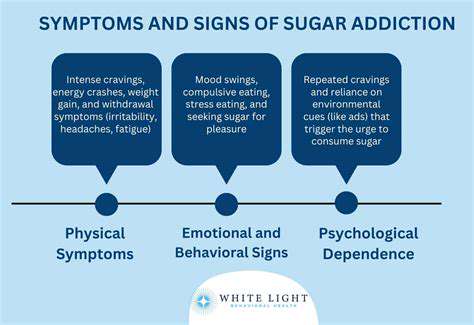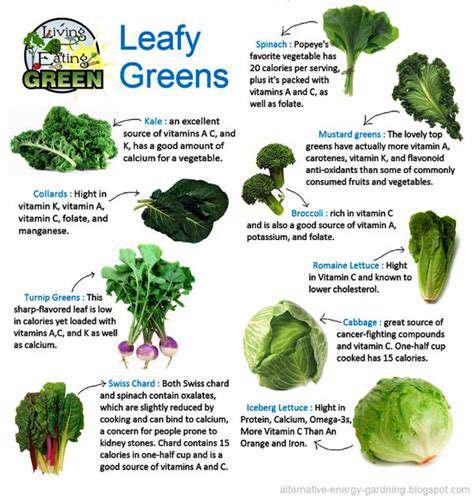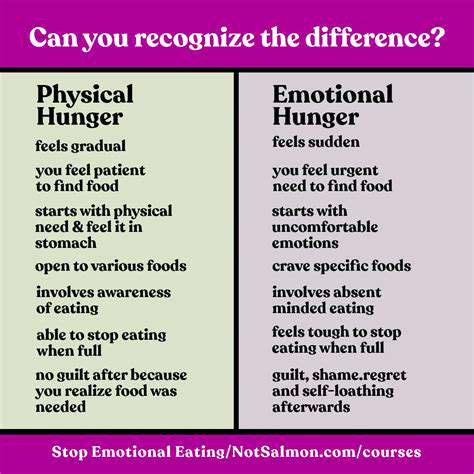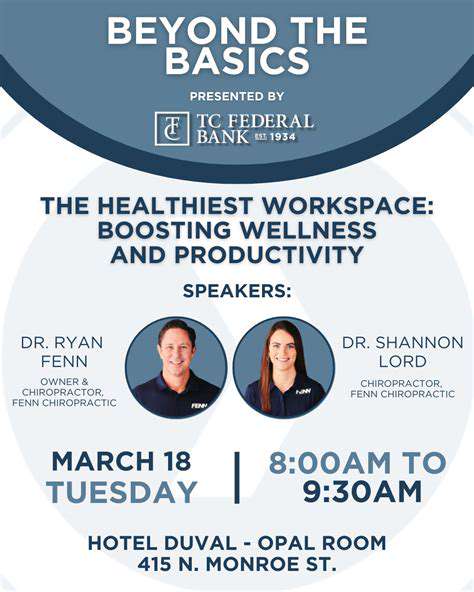Sugar Detox: Breaking Free from Sugar Addiction

Understanding the Root Causes
Cravings, those intense desires for specific foods, are often more than just a simple hunger pang. They're complex physiological and psychological responses that can be triggered by a multitude of factors. Understanding these underlying causes is crucial for effectively managing and overcoming cravings. This understanding goes beyond simply recognizing the craving; it delves into the intricate interplay of hormones, neurotransmitters, and learned associations.
Often, cravings are linked to nutrient deficiencies. Your body might be signaling a need for specific vitamins or minerals that it's not getting from your diet. Similarly, emotional states, like stress or boredom, can also heavily influence our food choices and lead to cravings for comfort foods or overly processed options.
The Role of Hormones and Neurotransmitters
Hormones like ghrelin, often called the hunger hormone, play a significant role in regulating appetite. Fluctuations in ghrelin levels can lead to intense cravings, particularly for high-calorie foods. Other hormones, such as cortisol, released during stress, can also contribute to cravings. These hormonal shifts can make it difficult to resist those tempting treats.
Neurotransmitters like dopamine and serotonin are also involved in the reward system of the brain. Certain foods can trigger a surge of dopamine, creating a feeling of pleasure and reinforcement. This association can become deeply ingrained, making it difficult to break free from cravings for those specific foods.
The Impact of Stress and Emotional States
Stress is a significant contributor to many cravings. When we're stressed, our bodies often crave comfort foods, often high in sugar and fat. These foods trigger a release of endorphins that temporarily alleviate stress, creating a reinforcing cycle.
Beyond stress, boredom, anxiety, or even sadness can also influence our food choices. These emotional states can lead to impulsive eating behaviors, often driven by cravings. Addressing the underlying emotional issues can be crucial for managing cravings effectively.
The Influence of Past Experiences and Learning
Our past experiences and learned associations can significantly impact our current food choices. For example, if a particular food was associated with a positive memory or event, we might develop a strong craving for that food later in life. These learned associations can be surprisingly potent and difficult to break without conscious effort.
Addressing Specific Food Cravings
Beyond the general understanding of cravings, it's also helpful to examine specific food cravings. For example, a craving for chocolate might stem from a need for a mood boost or a specific nutrient deficiency. A craving for salty foods could be a result of dehydration or a mineral imbalance. Recognizing the potential underlying reasons for specific cravings can lead to more targeted and effective strategies for managing them.
By understanding the diverse factors that influence our cravings, we can develop healthier strategies for managing these intense desires and making sustainable dietary choices.

Navigating Potential Challenges: Cravings and Withdrawal Symptoms
Understanding Cravings
Cravings during a sugar detox are a common and often intense experience. They arise from a complex interplay of physiological and psychological factors. Our bodies have developed a reliance on sugar, and when we reduce or eliminate it, the brain and body may experience a shift, leading to intense cravings for familiar sweet sensations. This is often accompanied by feelings of irritability, fatigue, and even anxiety, as the body adjusts to the absence of the readily available energy source.
Recognizing these cravings as a normal part of the process is crucial. Instead of fighting them directly, focusing on mindful awareness and healthy coping strategies can make a significant difference. This may involve engaging in activities that distract you, such as exercise, spending time in nature, or engaging in creative pursuits. Staying hydrated and ensuring adequate nutrition can also help alleviate the intensity of cravings.
Managing Withdrawal Symptoms
Withdrawal symptoms during a sugar detox can vary significantly from person to person. These reactions can include headaches, fatigue, irritability, and difficulty concentrating. These are often temporary and indicate the body is adjusting to the absence of sugar. They can be particularly challenging for those who have consumed high amounts of sugar for extended periods.
Implementing strategies to manage these symptoms is essential for a successful detox. Prioritizing adequate hydration, getting sufficient sleep, and maintaining a balanced diet of nutrient-rich foods can significantly mitigate these effects. Engaging in stress-reducing activities, such as meditation or deep breathing exercises, can also help manage the accompanying emotional responses. Remember, these symptoms are often temporary, and with consistent effort, the body will adjust.
Developing Sustainable Habits
A crucial aspect of navigating a sugar detox successfully is developing long-term, sustainable habits that support overall well-being. This includes focusing on a balanced diet rich in whole foods, including fruits, vegetables, lean proteins, and complex carbohydrates. These foods provide sustained energy and essential nutrients without the rapid spikes and crashes associated with processed sugars.
Beyond diet, incorporating regular physical activity into your routine is essential. Exercise helps manage stress, improves mood, and supports overall physical and mental health, further contributing to the long-term success of a sugar detox. It also helps keep the body regulated and energized. Building a support system of friends, family, or a support group can be incredibly valuable in providing encouragement and accountability throughout the process.
Furthermore, cultivating mindful eating practices is important. Paying attention to hunger and fullness cues, eating slowly, and savoring the flavors of your food can help you appreciate the natural tastes of whole foods, rather than relying on sugar for flavor enhancement. This mindful approach contributes to a healthier relationship with food.
It's also beneficial to identify and address any underlying emotional or psychological factors that might be contributing to your sugar cravings. Working with a therapist or counselor can provide valuable support and guidance in developing healthy coping mechanisms for stress and emotional regulation.
Remember, the goal is not just to eliminate sugar, but to cultivate a healthier relationship with food and overall well-being. These sustainable habits will support your long-term health and happiness.
By understanding, managing, and proactively addressing cravings and withdrawal symptoms, you can significantly increase your chances of success with a sugar detox and develop healthier habits that contribute to long-term well-being.











